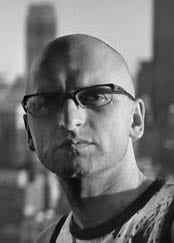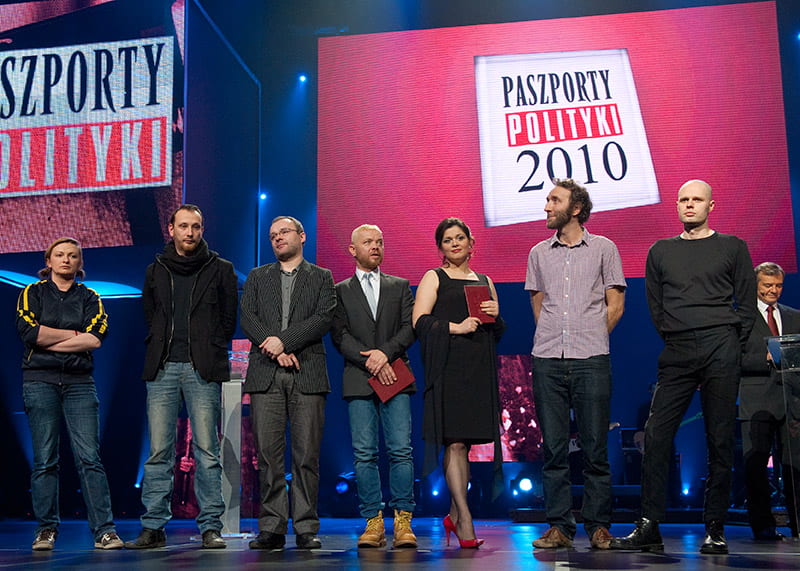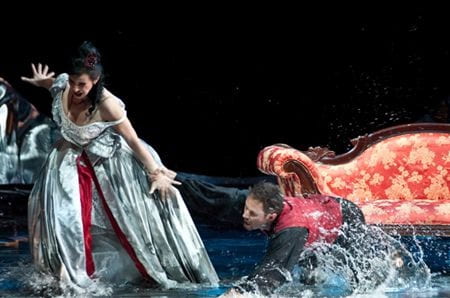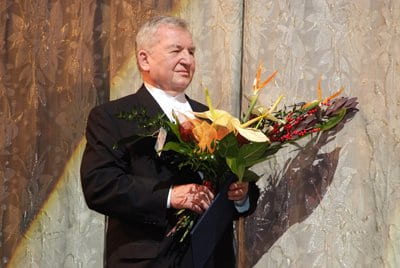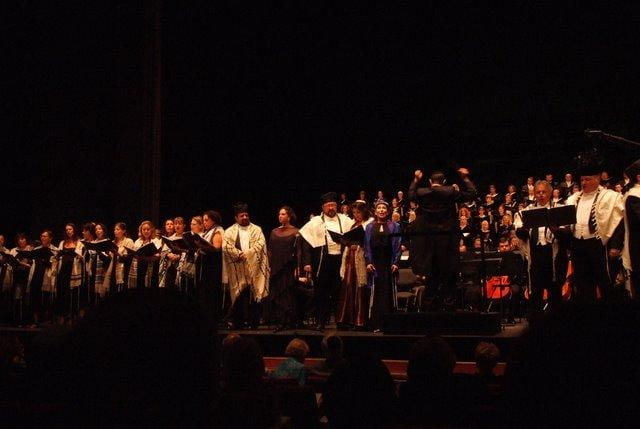Polish Music Newsletter Vol. 17, no. 2
PMC News
Recent Donations to the PMC
New Voices in Polish Music Collection
 We are very pleased and excited to announce a new donation of scores and recordings of music by several young Polish composers to the PMC library. The collection—which will expand in the coming months and years—will be called the New Voices in Polish Music Collection and features works by the youngest generation of Polish composers.
We are very pleased and excited to announce a new donation of scores and recordings of music by several young Polish composers to the PMC library. The collection—which will expand in the coming months and years—will be called the New Voices in Polish Music Collection and features works by the youngest generation of Polish composers.
The first installment of materials was obtained through the courtesy and goodwill efforts of Wojciech Blecharz (pictured at left with donated scores) on behalf of the Polish Music Center. Mr. Blecharz, a Polish composer and lecturer at the University of California-San Diego, has become our ambassador to the group of young Polish composers casually known as the “Glissando Generation.”
During his recent trip to Poland, Mr. Blecharz was able to obtain scores, recordings and biographical materials from several prominent artists. The list below is represents the initial gift to the New Voices Collection and each of the donors is gratefully acknowledged.
 Tomasz Jakub Opałka (b. 1983):
Tomasz Jakub Opałka (b. 1983):
Scores:
- x-Pose (2010)
- Przestrzenie (2010)
- QUADRA (2007)
Recordings:
- Przestrzenie (2010)
- SaYa (2008)
- QUADRA (2007)
- Piano Drum’a (2009)
- x-Pose (2010)
- Five CloudScapes (2009)
- DreamScapes (2008)
- Calisia Concerto (2010)
Scores:
- Sonata for Piano (2005)
- Concerto for Accordion and Orchestra (2010)
- Kilka utworów na chór (2010)
- II Sonata for Accordion “Smętek” (2010)
- Na oczy nieznajomej for baritone, violin and piano (2006)
- Concerto for Accordion, Alto Sax and Orchestra (2008)
- Chamber Concerto No. 2 for 9 Players (2009)
Scores:
- Fanfares Procession for Symphony Orchestra (2009)
- Clock’ophony for glockenspiel, vibraphone, xylophone and marimba (2006)
Recordings:
- Fanfares Procession for Symphony Orchestra (2009)
- Clock’ophony for glockenspiel, vibraphone, xylophone and marimba (2006)
- Fantasy from stele for double bass and piano (2007)
Justyna Kowalska (b. 1985):
Scores:
- “Te frazy … te pieśni… te arie” [These phrases…these songs…these arias] for String Orchestra (2009) – read about this piece in the July 2009 Quarta Magazine
- Image 1929 (Zdzisław Beksiński In Memoriam) for Symphony Orchestra (2008)
Once catalogued, these scores will be made available to researchers and performers, and programming possibilities for upcoming Polish Music Center concerts are already in the works. Many thanks to Wojciech Blecharz and to the composers whose donations initiated this collection: Justyna Kowalska,Tomasz Jakub Opałka, Jakub Polaczyk, and Artur Żuchowski.
Glissando Magazine
 Also through the good offices of Wojciech Blecharz, the PMC library received the following issues of the Glissando Magazine [Glissando
Also through the good offices of Wojciech Blecharz, the PMC library received the following issues of the Glissando Magazine [Glissando
Magazyn o muzyce współczesnej]
from Editor-in-Chief Jan Topolski: No. 10-11 (February 2007); No. 12 (May 2007); No. 13-14 (December 2007); No. 15 with a CD (September 2009); and No. 16 (May 2010) from the editor and publishers. This is a new and much welcomed addition to our collection of international publications on the subject of Polish music.
According to the magazine’s website, www.glissando.pl:
“Glissando” is a popularising magazine devoted to all ambitious forms of contemporary music and other arts presented in relationship to it. Our offer is addressed to all those who await something more than the pap feed from commercial broadcasts or academic and conservative purity – to all lovers of novelty, originality, breaking the borders, collaborating on new qualities. To (spiritually) young, curious and flexible audience of culture. Edited by young people for young people, “Glissando” binds together all these music lovers, who write best; and widely: people, who simply love music – what should finally refresh a musty air of Polish music critics. Our goal is to introduce this music to the listeners and to present it in the most attractive and unconventional forms. We wish to convey our opinions in light, amusing, open, and, at the same time stimulating and controversial, ways. Thus there is nothing like serious (high) music or pop (low) one today. There are no borders and species; one can find something curious and ambitious everywhere.
New Volumes of the PWM Encyclopedia
 A very useful and most needed gift from Director Andrzej Kosowski and PWM Music Publishers has reached the Polish Music Center. The latest four volumes of the Encyklopedia Muzyczna PWM—covering entries from Pe-R, S-Sł, Sm-Ś, and T-V—will add to the first seven volumes of the Encyclopedia already in our library.
A very useful and most needed gift from Director Andrzej Kosowski and PWM Music Publishers has reached the Polish Music Center. The latest four volumes of the Encyklopedia Muzyczna PWM—covering entries from Pe-R, S-Sł, Sm-Ś, and T-V—will add to the first seven volumes of the Encyclopedia already in our library.
Paderewski: The Modern Immortal
by PMC Director, Marek Żebrowski
The year 2010 was most notable—at least in terms of musical anniversaries—in celebrating the bicentennial of Chopin’s birth. A great deal of concerts, exhibits, special events and, as if on cue, the International Chopin Piano Competition in Warsaw was held in 2010 as well.
Another, much less celebrated anniversary—the sesquicentennial of Ignacy Jan Paderewski’s birth—had passed around the world with much less fanfare. Yes, there was the triennial International Paderewski Piano Competition (held in a more modest surroundings of Bydgoszcz, Poland) and its associated American Paderewski Piano Competition in Los Angeles, a few concerts in Poland and the United States specifically dedicated to celebrating Paderewski (including the Paderewski at 150 events at USC and in Paso Robles), but nothing quite on the scale and scope of the “Chopin Year” of 2010.

Does Paderewski merit as much attention as Chopin? This question would have been rhetorical half a century ago, when Paderewski was among the most recognized names in the world. Not only was he the first of truly epic virtuosos of the modern age and the one who toured the world over, but he was also a skilled and influential politician with unprecedented achievements in the history of his native Poland and—last but not least—one of the greatest living philanthropists and humanitarians.
The distinction of being hailed a “modern immortal” applied to Ignacy Jan Paderewski (1860-1941) well before his retirement age reflected an undisputed recognition of his truly historic contributions to the betterment of mankind. As a pianist, composer, Poland’s Prime Minister and later top diplomat at the League of Nations, Paderewski became a revered celebrity, who appeared twice on the cover of Time Magazine. On both occasions his likeness was modeled on the nineteenth century portraits of that other “great immortal,” Ludwig van Beethoven.
Such universal respect was truly unprecedented in Paderewski’s day and it certainly merited a celebration on the occasion of the sesquicentennial anniversary of his birth in 2010. Paderewski’s artistic and civic accomplishments were recognized with an honorary doctorate by the University of Southern California already in 1923. Since 2007 Paderewski’s monument became a fixture at the Thornton School of Music—the unveiling ceremony is pictured above. A year later a treasure trove of rare Paderewski memorabilia was donated to the Polish Music Center at USC.
 A scintillating sample of this collection in now on display at the Treasure Room of Doheny Library on the USC campus. Entitled “Paderewski: The Modern Immortal,” the exhibit follows several themes that dominated Paderewski’s life, including the history of Poland, Paderewski’s musical activities, career in politics, connections to the State of California, and family life—to learn more about these themes, read more here. The inside look at Paderewski’s personal life and public activities at the Doheny Library will hopefully expand and deepen each visitor’s understanding of Paderewski’s life as an artist, public person, and a private individual. The organizers hope that this exhibit not only shines a light upon heretofore unknown aspects of this great man and his accomplishments, but will also lead to new insights into the phenomenon of immortality in modern times. The exhibit runs through May 31, 2011, and the admission is free.
A scintillating sample of this collection in now on display at the Treasure Room of Doheny Library on the USC campus. Entitled “Paderewski: The Modern Immortal,” the exhibit follows several themes that dominated Paderewski’s life, including the history of Poland, Paderewski’s musical activities, career in politics, connections to the State of California, and family life—to learn more about these themes, read more here. The inside look at Paderewski’s personal life and public activities at the Doheny Library will hopefully expand and deepen each visitor’s understanding of Paderewski’s life as an artist, public person, and a private individual. The organizers hope that this exhibit not only shines a light upon heretofore unknown aspects of this great man and his accomplishments, but will also lead to new insights into the phenomenon of immortality in modern times. The exhibit runs through May 31, 2011, and the admission is free.
News
2011: Year Of Curie & Miłosz
She was a two-time Nobel Prize winner and one of Time magazine’s most influential women of the 20th century. Her pioneering work led to the first use of X-rays and a tentative understanding of cancers. He was a man of letters—a poet, novelist, essayist and also a Nobel laureate, whose greatest work exposed the fragility of the human intellect beside the allure of totalitarianism.
[Anthony Casey – Krakow Post, 24 January 2011]
By two unanimous votes, the Polish Parliament [Sejm] has declared 2011 the year of scientist Maria Curie-Skłodowska (Marie Curie) and writer Czesław Miłosz. 2011 marks the 100th anniversary of the second Nobel Prize awarded to Curie (in the field of Chemistry) and the 100th anniversary of Miłosz’s birth. Both were giants in their respective fields and, although both lived most of their lives abroad, they remained strongly connected to Poland. These two Polish heroes will be feted throughout Poland, and indeed throughout the world, during this year. To learn more about Curie and Miłosz and this anniversary year, visit krakowpost.com
On January 29, 2011, the joint French-Polish celebration of Madame Marie Curie was inaugurated at the Sorbonne University in Paris with an event that was attended by French President Nicolas Sarkozy. The previous day was the Official Opening of the 2011 “International Year of Chemistry” by UNESCO, which coincides with the Curie anniversary. Visit www.chemistry2011.org for more information and a calendar of upcoming events around the world.
Poland’s Book Institute, Instytut Ksiazki, has created a program entitled “Promesa Miłosz” to cover the activities of the year, which will center around the 2nd edition of the Czesław Miłosz Literary Festival, to be held on May 9-15, 2011 in Kraków. To learn more about the poet and follow related international events throughout the year, visit the website created by the Institute: www.milosz365.eu (English) or www.milosz365.pl (Polish).
While many of the events celebrating these 2011 anniversaries will focus on science or literature, there will also be music-related events. Five Polish composers—Paweł Mykietyn, Agata Zubel, Wojciech Ziemowit Zych, Aleksandra Gryka and Dobromiła Jaskot (pictured above)—are composing music for a project called “Made in Poland—Miłosz Sound.” Their works will be performed by leading European contemporary music ensembles, including the London Sinfonietta among others, as a part of the Sacrum Profanum Festival in September 2011.
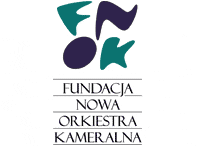 Also, the Fundacja Nowa Orkiestra Kameralna (FNOK) is planning a celebration of Miłosz entitled Muzyczne pejzaże Czesława Miłosza [The Musical Landscapes of Czesław Miłosz]. Led by the conductor Paweł Kos-Nowicki, the Warsaw Camerata Orchestra will perform a concert of specially commissioned works on June 26, 2011, at the Polish Radio’s Lutosławski Concert Studio in Warsaw. All compositions will be scored for string orchestra, percussion, and solo baritone. Composers who have been invited to participate in this concert include Joanna Bruzdowicz, Barbara Kaszuba, Ryszard Osada, Jarosław Siwiński, Romuald Twardowski, and PMC Director Marek Żebrowski.
Also, the Fundacja Nowa Orkiestra Kameralna (FNOK) is planning a celebration of Miłosz entitled Muzyczne pejzaże Czesława Miłosza [The Musical Landscapes of Czesław Miłosz]. Led by the conductor Paweł Kos-Nowicki, the Warsaw Camerata Orchestra will perform a concert of specially commissioned works on June 26, 2011, at the Polish Radio’s Lutosławski Concert Studio in Warsaw. All compositions will be scored for string orchestra, percussion, and solo baritone. Composers who have been invited to participate in this concert include Joanna Bruzdowicz, Barbara Kaszuba, Ryszard Osada, Jarosław Siwiński, Romuald Twardowski, and PMC Director Marek Żebrowski.
Other musical projects include: Aga Zarayan’s CD recording of Miłosz’s poetry in English translation; a concert celebrating the “Age of Miłosz” [Wiek Miłosza] in Gdańsk; a musical-literary juxtaposition of Miłosz and his contemporary, writer Jarosław Iwaszkiewicz, entitled “Festiwal literacko-muzyczne konfrontacje: Miłosz-Iwaszkiewicz” at the Iwaszkiewicz Museum in Stawisko; a series of interdisciplinary panels entitled “Słuchając Miłosza” [Listening to Miłosz] organized by Fundacja f.o.r.t.e. and the Fourth Mobile Academy of Ancient Music; and a planned documentary film, Walc z Czesławem Miłoszem [Waltz with Czeslaw Milosz], to be produced by the Fundacja Teatru Ósmego Dnia [Eighth Day Theatre Foundation].
Concerts related to the Madame Curie anniversary are planned in Warsaw for June 2011 at the Museum of Literature and December 2011 at the Central Agricultural Library. Further details will be posted on the website of the Polish Chemistry Committee.
[Sources: krakowpost.com, polskieradio.pl, chemistry2011.org, thenews.pl, mkidn.gov.pl, komchem.pan.pl, culture.pl]
Year Of Women In Poznań
In January, the Grand Theatre in Poznań, Poland [Teatr Wielki im. Stanisława Moniuszki w Poznaniu] inaugurated its “Year of Women” [Rok Kobiet]. During the entire year of 2011, new stagings of ten operas, each of them telling a story of a different female protagonist, will be presented. Included in the “Year of Women” will be performances of such well-known works as Tosca and Turandot—in a huge open-air performance directed by Michał Znaniecki—as well as several works that are lesser known or completely unknown. In February, the theatre will stage the World Premiere of Prasqual’s Ophelia, a composition commissioned by the Grand Theatre. Women are also prominent among this year’s producers—Lady Makbet of the Mtsensk District will be directed by Barbara Wysocka and Sleeping Beauty (Śpiąca Królewna) by Zofia Downat.
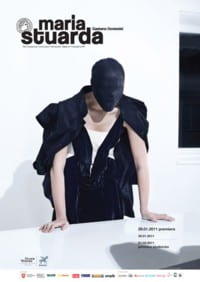 The operas to be performed this year are not only great works of art; they also serve as a window into how the feminine figure and experience has been viewed and portrayed throughout time. In order to foster much needed discussions regarding these issues, the performances at the Grand Theatre will be accompanied by debates, meetings and workshops. During these events, participants will explore many aspects of the feminine and develop concrete steps towards mutual progress, such as counteracting depression, dealing with aggression between women, and building up self-esteem. The first of such meetings was a panel discussion entitled “Between women of war. The hostility and power of Maria Stuarda” and took place on January 27, during the run of Donezetti’s Maria Stuarda. Panel participants were Dr. Agnieszka Graff (UW), Dr. Maria Solarska (UAM), conductor Renata Borowska-Juszczyńska (Teatr Wielki) and Bogna Kociołowicz-Wiśniewska (KONSOLA).
The operas to be performed this year are not only great works of art; they also serve as a window into how the feminine figure and experience has been viewed and portrayed throughout time. In order to foster much needed discussions regarding these issues, the performances at the Grand Theatre will be accompanied by debates, meetings and workshops. During these events, participants will explore many aspects of the feminine and develop concrete steps towards mutual progress, such as counteracting depression, dealing with aggression between women, and building up self-esteem. The first of such meetings was a panel discussion entitled “Between women of war. The hostility and power of Maria Stuarda” and took place on January 27, during the run of Donezetti’s Maria Stuarda. Panel participants were Dr. Agnieszka Graff (UW), Dr. Maria Solarska (UAM), conductor Renata Borowska-Juszczyńska (Teatr Wielki) and Bogna Kociołowicz-Wiśniewska (KONSOLA).
The opera which opened the year was Maddalena by Sergei Prokofiev, in a setting by Tomasz Cyz. It premiered on January 22 on the Drabowicz chamber stage. The action of the opera takes place in fifteenth-century Venice where the titular protagonist, Maddalena, cheats on her handsome husband with a disgusting alchemist. When the truth comes out, Gennaro and Stenio decide to kill Maddalena. Instead, however, she turns the two men against one another and they kill each other in a duel while Maddalena, half-demonic and half-angelic, watches their mutual destruction without emotion.
Honorary patronage over the Year of Women at the Grand Theatre in Poznań is First Lady Anna Komorowska. Media patronage is provided by, among others, the Polish Music Information Centre. Other partners include: KONSOLA Women’s Assoc. [Stowarzyszenie Kobiet KONSOLA], Women’s Rights Centre [Centrum Praw Kobiet], The Sisterhood of Breast Cancer Assoc. [Towarzystwo Amazonki], “No Women No Art” Festival, and the Women’s Congress Assoc. [Stowarzyszenie Kongres Kobiet].
[Source: polmic.pl]
Opole Philharmonic – US Tour
During the Winter/Spring of 2011, the Opole Philharmonic Orchestra under the Direction of Maestro Bogusław Dawidow will undertake its first transcontinental tour of the U.S., organized by the prestigious international Columbia Artists Management company. Stretching from East to West coast, this U.S. tour will be the longest tour taken by any of the European symphony orchestras. Starting with their first concert—which took place in Aiken, South Carolina on January 13—the orchestra is providing regular updates on the progress of their tour at U.S.A. Tour – live!.
Over the course of the nearly three month tour, the orchestra will perform 46 concerts (see listing below). The rich repertoire, which varies from concert to concert, includes the compositions of Fryderyk Chopin, Stanisław Moniuszko, Henryk Wieniawski, Ignacy Jan Paderewski, Ludwig van Beethoven, Johannes Brahms, Gustav Mahler, Wolfgang Amadeus Mozart, Jean Sibelius, Johann Strauss (Jr.), Joseph Strauss and Richard Strauss. Soloists include violinist Marta Kowalczyk and pianist Evgeni Mikhail.
Established in 1952, the Opole Philharmonic Orchestra has performed with the most outstanding piano, violin, and vocal soloists in the world. Since 1960, the Orchestra has participated regularly in prestigious Polish cultural events such as the Festival of Contemporary Music in Wrocław, the Chopin Festival in Duszniki, the Moniuszko Festival in Kudowa-Zdrój, Poznań Musical Spring, and the International Festival of Oratorio and Cantata Music in Wrocław. The Opole Philharmonic Orchestra has toured extensively abroad to countries as far reaching as Spain, France, Holland, Switzerland, the United Kingdom, South America, Hungary, Japan and most recently to Italy and Germany where the Orchestra performed music of contemporary Polish composers to great critical and popular acclaim.
In September of 1999 Bogusław Dawidow was appointed to the position of Music Director and Principal Conductor of the Opole Philharmonic Orchestra and he says this about the tour: “I am convinced the tour will mark a milestone in the history of the Opole Philharmonic. We’ve been working hard on raising our musical skills for almost a decade and now is the time to enter the international circuit and demonstrate that Poland has more top-calibre ensembles than the Warsaw Philharmonic and the National Polish Radio Symphony Orchestra in Katowice.” [Polish Radio External Service, 13 Jan. 2011]
January 15, 2011 Aiken, South Carolina
January 18, 2011 Florence, Alabama
January 19, 2011 Opelika, Alabama
January 20, 2011 Anniston, Alabama
January 21, 2011 Huntsville, Alabama
January 23, 2011 Athens, Georgia
January 24, 2011 Sarasota, Florida
January 25, 2011 West Palm Beach, Florida
January 26, 2011 West Palm Beach, Florida
January 27, 2011 Fort Myers, Florida
January 29, 2011 Vero Beach, Florida
January 30, 2011 Daytona Beach, Florida
January 31, 2011 Stuart, Florida
February 3, 2011 Zanesville, Ohio
February 4, 2011 Pembroke, North Carolina
February 5, 2011 Danville, Virginia
February 7, 2011 Radford, Virginia
February 8, 2011 Greenville, South Carolina
February 9, 2011 Manassas, Virginia
February 10, 2011 Greenville, North Carolina
February 11, 2011 Newport News, Virginia
February 12, 2011 Fairfax, Virginia (Washington D.C.)
February 13, 2011 New Brunswick, New Jersey
February 15, 2011 Binghamton, New York
February 16, 2011 Worcester, Massachusset (Boston, MA)
February 18, 2011 Morristown, New Jersey
February 19, 2011 Englewood, New Jersey
February 20, 2011 New York City, New York
February 22, 2011 Ashland, Kentucky
February 24, 2011 Champaign-Urbana, Illinois
February 25, 2011 Champaign-Urbana, Illinois
February 26, 2011 Wheaton, Illinois (Chicago, IL)
February 27, 2011 Rockford, Illinois
March 2, 2011 St. Louis, Missouri
March 3, 2011 Edmond, Oklahoma
March 4, 2011 Overland Park, Kansas (Kansas City, MO)
March 6, 2011 Prescott, Arizona
March 9, 2011 Santa Fe, New Mexico
March 11, 2011 Mesa, Arizona (Phoenix, AZ)
March 12, 2011 Las Vegas, Nevada
March 13, 2011 San Diego, California
March 14, 2011 Palm Desert, California
March 15, 2011 Orange County, California
March 18, 2011 San Luis Obispo, California
March 19, 2011 Modesto, California
March 20, 2011 Sacramento, California
[Source: press release, en.filharmonia.opole.pl, thenews.pl]
Blechacz Mini-Tour
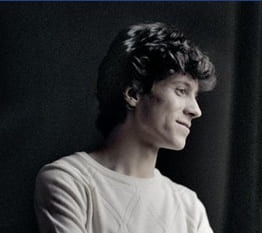 In October 2005, a 20 year old Rafał Blechacz electrified the musical world by sweeping the field at the International Chopin Piano Competition in Warsaw, winning every prize available. The first Pole to win the prestigious competition since Kristian Zimerman, he has gone on to play in most of the world’s most celebrated concert halls with some of the best orchestras, and has also signed an exclusive five-year contract with Deutsche Grammophon.
In October 2005, a 20 year old Rafał Blechacz electrified the musical world by sweeping the field at the International Chopin Piano Competition in Warsaw, winning every prize available. The first Pole to win the prestigious competition since Kristian Zimerman, he has gone on to play in most of the world’s most celebrated concert halls with some of the best orchestras, and has also signed an exclusive five-year contract with Deutsche Grammophon.
In February, Blechacz will perform in six locations throughout North America. His programs will include: Szymanowski – Sonata No. 1 in C minor, Op. 8; Chopin – Two Ballades(No. 1 in G minor, Op. 23 and No. 2 in F major, Op. 38), Two Polonaises, Op. 26, and Four Mazurkas, Op. 41, Piano Concerto No. 1 in e minor, Op. 11; Mozart – Variations in C major, K. 264; and Debussy – L’isle Joyeuse.
Sunday, February 6 | 3:00 p.m.
Rafał Blechacz – Piano Recital
Sundin Music Hall, Hamline University
St. Paul, MN
Info: Chopin Society of Minnesota
Friday, February 11 | 8:00 p.m.
Rafał Blechacz – Piano Recital
Hill Auditorium, University of Michigan
Ann Arbor, MI
Info: University Music Society
Sunday, February 13 | 4:00 p.m.
Rafał Blechacz performs Piano Concerto No.1 with Concertante
Rackham Auditorium, University of Michigan
Ann Arbor, MI
Info: University Music Society
Friday, February 18 | 8:00 p.m.
Rafał Blechacz – Piano Recital
Folly Theater – Friends of Chamber Music series
12th Street and Central, Kansas City, MO
Info: www.chambermusic.org or call 816-561-9999
Sunday, February 20, 2011 at 3:00 pm
Rafał Blechacz – Piano Recital
Herbst Theatre – War Memorial Veterans Building
401 Van Ness Ave., San Francisco, CA
Info: Chamber Music San Francisco
Special ticket price available from the Polish Arts & Culture Fdn.
February 22 | 7:30 p.m.
Rafał Blechacz – Recital and Concertos with Edmonton Symphony Orchestra, William Eddins, cond.
Enmax Hall, Winspear Centre
Edmonton, Alberta, Canada
Info: winspearcentre.com or chopin2010.ca
[Source: chambermusicsf.org, blog-en.blechaczinfo.com, blechacz.net, Photo: Felix Broede/DG]
Kosciuszko Fdn Chopin Piano Competition
 The 62nd Kosciuszko Foundation Chopin Piano Competition is scheduled for April 8 and 9. The competition is open to citizens and permanent residents of the US and to international full-time students with valid student visas. Applicants must be between the ages of 16 and 22 as of April 8, 2011. Deadline for application submission is March 5, 2011, to the address below. Applications and more information are available at www.thekf.org. Monetary prizes for the top three winners are $5,000/$2,500/$1,500, plus first prize winners will perform in concerts at major cities throughout the country.
The 62nd Kosciuszko Foundation Chopin Piano Competition is scheduled for April 8 and 9. The competition is open to citizens and permanent residents of the US and to international full-time students with valid student visas. Applicants must be between the ages of 16 and 22 as of April 8, 2011. Deadline for application submission is March 5, 2011, to the address below. Applications and more information are available at www.thekf.org. Monetary prizes for the top three winners are $5,000/$2,500/$1,500, plus first prize winners will perform in concerts at major cities throughout the country.
The jury chair for this year’s Competition is David Dubal—internationally known pianist, teacher, writer, and broadcaster. An acknowledged authority on piano literature, David Dubal’s highly acclaimed books include The Art of the Piano, Evenings with Horowitz, Reflections from the Keyboard, and Conversations with Menuhin. Dubal’s video, The Golden Age of the Piano, has been seen worldwide in four languages, and won him an Emmy award. His compact disc, Remembering Horowitz, featured Dubal and 125 other pianists recalling this legendary performer. Recipient of the First ASCAP/Deems Taylor Award for broadcast journalism, Mr. Dubal has won numerous other honors, including the coveted George Foster Peabody Award for innovative broadcasting. Mr. Dubal has been a faculty member of The Juilliard School since 1983, and joined the faculty of the Manhattan School of Music in 1994. A former student of Arthur Loesser (whose teacher was Zygmunt Stojowski), Mr. Dubal has performed in recitals and lecture-recitals in forty states, conducted master classes and lectured world-wide, and judged many international competitions, including the Van Cliburn International Piano Competition.
Competition Preliminaries begin at 10 AM on Friday, April 8 at the Kosciuszko Foundation House at 15 E 65 Street, NYC; auditions are open to the public, and there is no admission charge. Finals will be held at the Foundation House on Saturday, April 9, beginning at 11 AM. Tickets are $15.
The Kosciuszko Foundation Chopin Piano Competition was established in 1949, in honor of the 100th anniversary of the death of Frederic Chopin. The inauguration took place at the Kosciuszko Foundation House in New York City, with Witold Malcuzynski as guest artist, and Abram Chasins, composer and music director of the New York Times Radio Stations, presiding. Over the years, many outstanding musicians have been associated with the competition including Van Cliburn, Ian Hobson, and Murray Perahia.
Contact and submission address:
The Kosciuszko Foundation
15 East 65th Street
New York, NY 10065
tel: (212) 734-2130 | fax: (212) 628-4552
e-mail: info@thekf.org | www.thekf.org
Polish American Encyclopedia
The Polish American Historical Association has published The Polish American Encyclopedia, the definitive reference work on Polish American history and culture. Edited by James S. Pula, the Encyclopedia is comprised of over 1,200 entries, enhanced with rich photographs and additional references for nearly all subjects. The product of the collaborative efforts of 128 scholars, the encyclopedia is designed as a basic research tool for students, researchers and the general public.
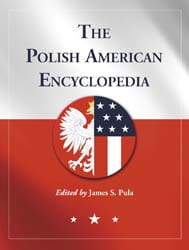 Published by McFarland Publishers, the book brings together in a single volume thematic essays detailing Polish American participation in organized labor, education, ethnic organizational life, politics, religious life, and other subjects, along with topical entries that explain important subjects including: various Polonia organizations such as the Polish American Journal and the Polish Music Center, important historical moments such as the Lattimer Massacre and the Polish Army in France, and cultural elements such as wigilia and ethnic foods. The publication is further enhanced with biographies of prominent Polish Americans who made significant contributions to the development of American life and culture or the Polish American ethnic community, such as the articles about Henryk Wars, Adam Makowicz, and Stefan and Wanda Wilk prepared by the PMC staff.
Published by McFarland Publishers, the book brings together in a single volume thematic essays detailing Polish American participation in organized labor, education, ethnic organizational life, politics, religious life, and other subjects, along with topical entries that explain important subjects including: various Polonia organizations such as the Polish American Journal and the Polish Music Center, important historical moments such as the Lattimer Massacre and the Polish Army in France, and cultural elements such as wigilia and ethnic foods. The publication is further enhanced with biographies of prominent Polish Americans who made significant contributions to the development of American life and culture or the Polish American ethnic community, such as the articles about Henryk Wars, Adam Makowicz, and Stefan and Wanda Wilk prepared by the PMC staff.
Founded in 1942, the Polish American Historical Association has as its goals the preservation, interpretation, and dissemination of information on the history and culture of the Polish experience in America. According to the United States national census in 2000, nearly 9,000,000 Americans traced their roots to Poland, a figure many historians believe to be understated due to the intermarriage of the post-immigrant generations and the initial confusion over nationality resulting from the partition of traditional Polish lands by Austria, Germany and Russia in the 1790s. Poles constituted the second largest group of European immigrants arriving in the United States during the formative period between 1870 and 1920, surpassed only by those of Italian nativity. Further waves of migration in the post-World War II era and the period of the rise of Solidarność in Poland contributed to maintaining the presence of a strong Polish ethnic presence that has influenced materially the development of American social, economic, political and cultural history.
To order this valuable resource, contact McFarland Publishers at: www.mcfarlandpub.com. For further information, contact: James S. Pula, jpula@pnc.edu, 219-448-3214.
[Source: Press release]
Polmic Book On Electro-Accoustic Music
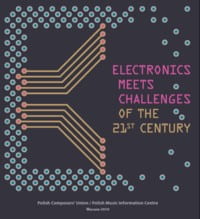 The Polish Music Information Centre (POLMIC) in Warsaw has issued a book documenting the conference “Electronics Meets Challenges of the 21st Century.” This conference was a Polish-Norwegian project on new technology that took place from September 22-25, 2010 at the Fryderyk Chopin Music University in Warsaw.
The Polish Music Information Centre (POLMIC) in Warsaw has issued a book documenting the conference “Electronics Meets Challenges of the 21st Century.” This conference was a Polish-Norwegian project on new technology that took place from September 22-25, 2010 at the Fryderyk Chopin Music University in Warsaw.
The book’s Preface, written by Dir. Mieczysław Kominek of POLMIC, begins thus:
Since the early 1950s, electro-acoustic music has been a symbol and a synonym of modernity in music, and in art in general. Its origins and growth have been inextricably linked with the development of technological civilisation worldwide. The turn of the 20th century brought a rapid acceleration of technical progress related to digital technology and new means of communication. The electro-acoustic music of our era has adopted all the new technological inventions, which led to fundamental changes in the communication between the author and the recipient of the musical work. Those changes pose a challenge for the creators of electro-acoustic music: both composers and engineers. They open up areas of new aesthetics, new performance practice and new forms of reception of that music…
The book is available in English in a 4-part electronic version on the POLMIC website: polmic.pl
[Source: polmic.pl]
Kurzak Live & On Decca
 The young and highly talented Polish soprano, Aleksandra Kurzak, recently signed an exclusive contract with Decca Records. Recorded in December 2010, the discs will be released in mid-2011. The repertoire presented on the recordings will be quite varied, including coloratura and lyrical arias. The Orquestra de la Comunitat Valenciana, directed by Omer Wellber, will accompany Kurzak in selected arias from Bellini’s I Puritani, Donizetti’s Lucia di Lammermoor, Verdi’s La Traviata, and Moniuszko’s Straszny Dwór. She will also be a guest soloist on tenor Joseph Calleji’s album for Decca, singing duets from operas by Puccini and Bizet.
The young and highly talented Polish soprano, Aleksandra Kurzak, recently signed an exclusive contract with Decca Records. Recorded in December 2010, the discs will be released in mid-2011. The repertoire presented on the recordings will be quite varied, including coloratura and lyrical arias. The Orquestra de la Comunitat Valenciana, directed by Omer Wellber, will accompany Kurzak in selected arias from Bellini’s I Puritani, Donizetti’s Lucia di Lammermoor, Verdi’s La Traviata, and Moniuszko’s Straszny Dwór. She will also be a guest soloist on tenor Joseph Calleji’s album for Decca, singing duets from operas by Puccini and Bizet.
“Signing a contract with Decca fulfills my dreams,” said Kurzak. “Being heard on the same label as Pavarotti, Sutherland, Fleming and Tebaldi is the highest honor. I’m very proud to be the first Polish artist under contract with this legendary recording company.”
Continuing her ascension on the opera stage, Kurzak will sing a solo recital at the prestigious Teatro La Scala in Milan, Italy on February 21. Accompanied by famed pianist Eric Schneider, her program will be divided into two sections: Songs of the Nightingale and Songs of Poland.
In addition to well-known nightingale songs by Schubert, Brahms, Tchaikovsky, Rimsky-Korsakov, Berg and Grieg, the recital program will also include Władysław Żeleński’s Słowiczku mój, Stanisław Niewiadomski’s Słowiczku mój op. 24 n. 7 and Witold Lutosławski’s Spóźniony słowik. Her section of Polish songs will include Fryderyk Chopin’s Życzenie op. 74 n. 1, Piosnka litewska op. 74 n. 16, and Śliczny chłopiec op. 74 n. 8; Stanisław Moniuszko’s Prząśniczka Polna różyczka; Ignacy Jan Paderewski’s Quattro Canti op. 7 (1. Gdy ostatnia róża zwiędła, 2. Siwy koniu, 3. Szumi w gaju brzezina, 4. Chłopca mego mi zabrali); Mieczysław Karłowicz’s Pamiętam ciche jasne złote dnie op. 1 n. 5, Zaczarowana królewna op. 3 n. 10, Na śniegu op. 1 n. 3; and Z nową wosną; as welll as Ludomir Różycki’s Rajski ptak.
Worldwide recognition for Kurzak began during the 2004-2005 season, when she appeared as Olympia in Offenbach’s Tales of Hoffman at the Metropolitan Opera in New York and as Aspasia in Mitridate, Ré di Ponto at the Royal Opera House, Covent Garden, in London. She has followed these acclaimed performances with highly successful appearances in the Seattle Opera’s production of Lucia di Lammermoor. In 2011 she will appear as Violetta in Verdi’s La Traviata at the Hamburg State Opera (opposite Polish baritone Artur Ruciński as Germont), Warsaw’s National Opera, and the Teatro Regio in Turin. She will also be heard in Donizetti’s L’elisir d’amore in Valencia and Vienna, in Rossini’s Il Barbiere at Covent Garden, Mozart’s Le Nozze di Figaro in Madrid and Cosí fan tutte in Los Angeles, and Humperdinck’s Hansel und Gretel at the Metropolitan Opera in New York.
February 13/15/17
Aleksandra Kurzak sings Violetta in La Traviata
Teatr Wielki-Opera Narodowa – Warsaw, Poland
Monday, February 21
Aleksandra Kurzak in Recital
Teatro La Scala – Milan, Italy
Saturday, February 26
Aleksandra Kurzak sings Violetta in La Traviata
Hamburgische Staatsoper – Hamburg, Germany
[Source: polmic.pl, teatroallascala.org, aleksandrakurzak.com]
Anderszewski At Warsaw Phil
On February 4, pianist Piotr Anderszewski will perform at Warsaw Philharmonic Hall with the SWR Symphony Orchestra [Südwestrundfunk Sinfonieorchester] of Southwest Germany and the Warsaw Philharmonic Choir, with Sylvain Cambreling conducting. The program will include: Claude Debussy – Six épigraphes antiques, Karol Szymanowski – Symphony Concertante op. 60 for piano and orchestra, and Ferenc Liszt – Dante Symphony.
Widely considered to be one of the greatest pianists in the world, Piotr Anderszewski is of Polish-Hungarian descent. He was born in Warsaw, where he studied at the F. Chopin Music Academy. Later, he continued his studies at the conservatories in Strasbourg and Lyon. At 18 he spent a year in the Thornton School of Music at USC on a scholarship. He has also studied with Murray Perahia, Fou Ts’ong and Leon Fleisher. Since 2000 he has been an exclusive Virgin Classics artist.
Friday, 4 February 2011 | 7:30 p.m.
Piotr Anderszewski with SWR Sinfonieorchester
National Philharmonic Hall, Warsaw, Poland
Information & tickets: www.filharmonia.pl
[Source: anderszewski.net]
Kocyan At Loyola Marymount
On Saturday, February 19 at 8PM, Polish pianist Wojciech Kocyan will perform a Faculty Piano Recital at Loyola Marymount University, where he is an assistant professor in the music department. The program of the recital, which will include a World Premiere*, will be as follows: Ludwig van Beethoven – Sonata in F-minor Op. 57 “Appassionata”; Mark Saya – Barcarolles *; Claude Debussy – “Ondine” from Preludes Book II, L’isle joyeuse; Frederic Chopin – Impromptus: Op. 29 in A-flat Major, Op. 36 in F-sharp minor; and Robert Schumann – Carnaval Op. 9.
 Born in Poland, pianist Wojciech Kocyan (right) studied with Krystyna Moszyńska from age six to eighteen. He also studied with two of the world’s most esteemed piano pedagogues: Andrzej Jasiński at the Karol Szymanowski Academy of Music in Katowice, where he received his Masters Degree, and with John Perry at the USC Thornton School of Music, where he received a Doctor of Musical Arts Degree. He is a laureate of several international piano competitions, including F.Busoni and Viotti, as well as a special prizes winner of the XI International Chopin Competition and a First Prize winner of the Paderewski Piano Competition. He has performed on all continents participating in music festivals such as Musica Antiqua Europae Orientalis, Capri Festival, Bydgoszcz International Music Festival, H.M.Gorecki Festival, Beethovenfest, Paderewski Festival, Liszt Festival in Vienna, San Francisco Liszt Festival and the Chopin Festival in Paris. He was honored to be the final gala concert soloist of the Festival of Polish Pianism, and performed the Paderewski Piano Concerto with Maestro Jerzy Maksymiuk at the opening concert of the Fourth International Paderewski Piano Competition. He has recorded for Polish Television, Radio and Film and his performances were broadcast in Europe, United States and Australia. His solo and chamber music recordings can also be found on the DUX label.
Born in Poland, pianist Wojciech Kocyan (right) studied with Krystyna Moszyńska from age six to eighteen. He also studied with two of the world’s most esteemed piano pedagogues: Andrzej Jasiński at the Karol Szymanowski Academy of Music in Katowice, where he received his Masters Degree, and with John Perry at the USC Thornton School of Music, where he received a Doctor of Musical Arts Degree. He is a laureate of several international piano competitions, including F.Busoni and Viotti, as well as a special prizes winner of the XI International Chopin Competition and a First Prize winner of the Paderewski Piano Competition. He has performed on all continents participating in music festivals such as Musica Antiqua Europae Orientalis, Capri Festival, Bydgoszcz International Music Festival, H.M.Gorecki Festival, Beethovenfest, Paderewski Festival, Liszt Festival in Vienna, San Francisco Liszt Festival and the Chopin Festival in Paris. He was honored to be the final gala concert soloist of the Festival of Polish Pianism, and performed the Paderewski Piano Concerto with Maestro Jerzy Maksymiuk at the opening concert of the Fourth International Paderewski Piano Competition. He has recorded for Polish Television, Radio and Film and his performances were broadcast in Europe, United States and Australia. His solo and chamber music recordings can also be found on the DUX label.
Learn more about Wojciech Kocyan on his website, www.wkocyan.com.
Saturday, February 19 at 8PM
Wojciech Kocyan – Faculty Piano Recital
Loyola Marymount University – Murphy Recital Hall
1 LMU Dr., Los Angeles, CA 90045
Free Admission
Reception immediately following in the George A.V. Dunning Courtyard
More info: cfa.lmu.edu or (310) 338-5386
[Source: Press release, Photo: Los Angeles, USC 2007 / PMC Archives]
15th Anniversary For Opera Circle
Opera Circle of Cleveland is celebrating its 15th Anniversary Season during 2010/2011. The next production is Verdi’s Aida on February 18 and 20, followed by Massenet’s Werther in April, and then Szymanowski’s Krol Roger will be performed on June 10 and 12.
 Founded in 1995 by Dorota Sobieska (left) and Jacek Sobieski, Opera Circle presents live performances of operatic masterpieces for the enjoyment of the general public in Cleveland. Through the timeless beauty of music and the highest artistic standards, Opera Circle’s productions bring together soloists, chorus, orchestra, staging, dance, costumes, sets, and audience. Opera Circle has produced twenty-seven operas in Italian, German, Polish, and English, and continually organizes a vibrant series of choral and instrumental concerts, lecture programs, and symposia. The innovative format of Opera Circle reaches the height of artistic inspiration while fostering community involvement and encourages each individual involved in the creative process to actively participate, performer and audience alike, by unfolding his or her own unique gift of imagination. Learn more by visiting www.operacircle.org or calling 216-441-2822.
Founded in 1995 by Dorota Sobieska (left) and Jacek Sobieski, Opera Circle presents live performances of operatic masterpieces for the enjoyment of the general public in Cleveland. Through the timeless beauty of music and the highest artistic standards, Opera Circle’s productions bring together soloists, chorus, orchestra, staging, dance, costumes, sets, and audience. Opera Circle has produced twenty-seven operas in Italian, German, Polish, and English, and continually organizes a vibrant series of choral and instrumental concerts, lecture programs, and symposia. The innovative format of Opera Circle reaches the height of artistic inspiration while fostering community involvement and encourages each individual involved in the creative process to actively participate, performer and audience alike, by unfolding his or her own unique gift of imagination. Learn more by visiting www.operacircle.org or calling 216-441-2822.
Downes Plays Chopin in D.C.
 The Embassy of the Republic of Poland and Polish American Arts Association of Washington DC (PAAA) will present thier annual concert of Fryderyk Chopin’s music on Saturday, February 12. The recital will be performed by Lara Downes, internationally celebrated soloist and chamber musician (right), at the Embassy of the Republic of Poland. Proceeds from the event will benefit the PAAA Scholarship Fund.
The Embassy of the Republic of Poland and Polish American Arts Association of Washington DC (PAAA) will present thier annual concert of Fryderyk Chopin’s music on Saturday, February 12. The recital will be performed by Lara Downes, internationally celebrated soloist and chamber musician (right), at the Embassy of the Republic of Poland. Proceeds from the event will benefit the PAAA Scholarship Fund.
Saturday, February 12, 2011 | Doors – 5:30, Concert – 6:00 PM
Annual Chopin Concert featuring Lara Downes
Embassy of the Republic of Poland
2640 16th Street NW, Washington, D.C.
Tickets $50, by reservation only (RSVP by Feb. 5)
Information: www.paaa.us or Ted Mirecki: 703-241-1149, ted@mirecki.us
Możdżer & Motion Trio
On February 22, the Kraków Opera will host a concert given by the Motion Trio ensemble and world famous pianist, Leszek Możdżer, in honor of the 15th anniversary of Motion Trio. This accordion trio was founded in 1996 and its members—Janusz Wojnarowicz (leader and author of many compositions and arrangements), Paweł Baranek, and Marcin Gałażyn—have sought to highlight new techniques and open new sound horizons for this well-known instrument. Motion Trio concerts are always musically and dramatically rewarding experiences that are certainly worth exploring.
[Source: opera.krakow.pl]
Auguscik & Lewis At Chopin Theatre
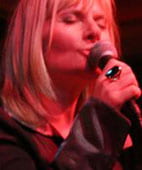 On Saturday, February 19th, acclaimed Polish-born jazz vocalist Grazyna Auguscik and pianist Benjamin Lewis will salute Frederic Chopin in an afternoon of visionary interpretations alongside jazz standards. The performance is this season’s Chopin Brunch #10 at the Chopin Theatre, an independent arts center in the heart of Chicago’s Wicker Park neighborhood. Established in 1990, the Chopin Theatre has had approximately 1,400 events with over 7,000 presentations (5,000 theatrical, 900 film, 800 literary evenings and over 100 music, dance, visual arts and social events). The Chopin Theatre has also produced over 110 of its own productions, mostly Eastern European, and has hosted performers from every state in the U.S. and from over 40 countries.
On Saturday, February 19th, acclaimed Polish-born jazz vocalist Grazyna Auguscik and pianist Benjamin Lewis will salute Frederic Chopin in an afternoon of visionary interpretations alongside jazz standards. The performance is this season’s Chopin Brunch #10 at the Chopin Theatre, an independent arts center in the heart of Chicago’s Wicker Park neighborhood. Established in 1990, the Chopin Theatre has had approximately 1,400 events with over 7,000 presentations (5,000 theatrical, 900 film, 800 literary evenings and over 100 music, dance, visual arts and social events). The Chopin Theatre has also produced over 110 of its own productions, mostly Eastern European, and has hosted performers from every state in the U.S. and from over 40 countries.
Saturday, February 19 | 11:00 a.m.
Chopin Brunch #10 – Re interpreting Chopin with Grazyna Auguscik
1543 West Division, Chicago, IL 60642
Tickets & info: chopintheatre.com / 773-278-1500
[Source: Press release]
Artistic Subcultures
 In an interview entitled “There’s No Such Thing as the Mainstream,” interviewer Lech Moliński talks to Bartek Chaciński in Biweekly, the English-language version of the culture magazine Dwutygodnik. Former editor in chief of City Magazine Warszawa, former music editor of the music monthly Machina and deputy editor of the weekly Przekrój, Chaciński has recently published the book Wyż nisz [The rise of the niche].
In an interview entitled “There’s No Such Thing as the Mainstream,” interviewer Lech Moliński talks to Bartek Chaciński in Biweekly, the English-language version of the culture magazine Dwutygodnik. Former editor in chief of City Magazine Warszawa, former music editor of the music monthly Machina and deputy editor of the weekly Przekrój, Chaciński has recently published the book Wyż nisz [The rise of the niche].
The interview begins with this preface: “Poland’s best exports are heavy metal, improvised music, and electronic music, and yet we somehow insist upon making the West listen to Edyta Górniak…” To continue reading about the importance of subcultures in Polish music, as well as other art forms, visit: www.biweekly.pl
[Source: biweekly.pl]
PIASA – Calls For Nominations & Proposals
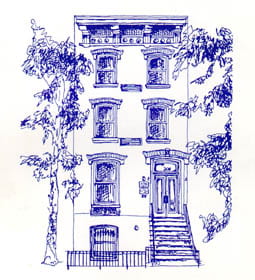 A “Nomination Committee” has been appointed by the President and Executive Director of the Polish Institute of Arts & Sciences of America (PIASA), Thaddeus V. Gromada, to make recommendations to the PIASA Board of Directors about who should be nominated for the Presidency of PIASA, membership on the Board, the officers of Secretary and of Treasurer, and membership on the Advisory Council. Suggestions and recommendations are welcome! They may be made to Paul W. Knoll, Committee Chair, who will share them with other members of the Committee ( Zbigniew Brzezinski, Anne Hermanowski-Vosatka, Norman Kelker, Eve Krzyzanowski, and Thaddeus Radzilowski). Professor Knoll’s E-mail address is: knoll@college.usc.edu. In order to make our recommendations to the Board of Directors of PIASA at its early March meeting, we would appreciate hearing your views by the middle of February at the latest.
A “Nomination Committee” has been appointed by the President and Executive Director of the Polish Institute of Arts & Sciences of America (PIASA), Thaddeus V. Gromada, to make recommendations to the PIASA Board of Directors about who should be nominated for the Presidency of PIASA, membership on the Board, the officers of Secretary and of Treasurer, and membership on the Advisory Council. Suggestions and recommendations are welcome! They may be made to Paul W. Knoll, Committee Chair, who will share them with other members of the Committee ( Zbigniew Brzezinski, Anne Hermanowski-Vosatka, Norman Kelker, Eve Krzyzanowski, and Thaddeus Radzilowski). Professor Knoll’s E-mail address is: knoll@college.usc.edu. In order to make our recommendations to the Board of Directors of PIASA at its early March meeting, we would appreciate hearing your views by the middle of February at the latest.
The 69th PIASA Annual Meeting—a multi-disciplinary conference on Polish Studies—will be held at the Hyatt Arlington Hotel in Arlington, Viginia on Friday, June 10, 2011 Saturday, June 11, 2011. The conference is organized in cooperation with the Institute for European, Russian, and Eurasian Studies (IERES) at The Elliott School of International Studies, George Washington University, Washington, DC.
Proposals for individual papers with short abstracts will be considered, but preference will be given to proposals for complete two hour sessions involving presentation of three 25 minute papers with a chair and a discussant. Proposals for panel and roundtable discussions should be submitted only on topics that lend themselves to that format. Initial screening of all proposals will be made by a program committee as soon as they are received. Deadline for receipt of all proposals is April 9, 2011. Proposals should be sent to PIASA, 208 E. 30th St., New York, N.Y. 10016 , Att: Dr. M.B.B. Biskupski, Program Chair. Submissions via email of Word documents may be made to: piasany@verizon.net. More specific information regarding registration fees, directions, parking, etc. will be posted on www.piasa.org. Papers presented will be considered for publication in The Polish Review.
[Source: piasa.org]
Awards
Gloria Artis For Gergiev
 On Friday January 7, Poland’s Minister of Culture, Bogdan Zdrojewski, presented conductor Valery Gergiev with the Gloria Artis Gold Medal for Merits in Culture, which is conferred by the Polish government for the most distinguished contributions to Polish art and culture. The ceremony took place at the Warsaw Philharmonic Hall, during the concert concluding the celebrations of the Chopin Year. During the same concert, Krzysztof Penderecki’s new work, A sea of dreams did breathe on me… Songs of reverie and nostalgia for soprano, mezzo-soprano, baritone and orchestra, was premiered.
On Friday January 7, Poland’s Minister of Culture, Bogdan Zdrojewski, presented conductor Valery Gergiev with the Gloria Artis Gold Medal for Merits in Culture, which is conferred by the Polish government for the most distinguished contributions to Polish art and culture. The ceremony took place at the Warsaw Philharmonic Hall, during the concert concluding the celebrations of the Chopin Year. During the same concert, Krzysztof Penderecki’s new work, A sea of dreams did breathe on me… Songs of reverie and nostalgia for soprano, mezzo-soprano, baritone and orchestra, was premiered.
Valery Gergiev, born in 1953 in Moscow, is general director and artistic director of the Mariinsky Theatre, principal conductor of London Symphony Orchestra, and artistic director of the White Nights Festival in St. Petersburg. He is particularly acclaimed for his interpretations of operas of Russian composers, especially Modest Mussorgsky, Pyotr Tchaikovsky and Sergei Prokofiev.
[Source: PAP via beethoven.org.pl]
2010 Polityka Passports
On January 18, 2011 at the Grand Theatre in Warsaw, Polityka’s 2010 “Passport” awards were given during a gala evening ceremony. Founded in 1993, the Passports are a prestigious award presented annually by the weekly magazine Polityka for outstanding achievements in the field of culture. It is presented in six categories: literature, film, theatre, classical music, visual arts, and popular music. In addition to personal congratulations by Polish President Bronisław Komorowski, laureates received a symbolic Passport certificate and a monetary prize of 10,000 PLN [ca. $3,500].
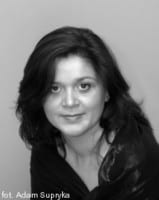 Soprano Wioletta Chodowicz was the recipient of Polityka’s Passport in the classical music category. To-date she has performed on the stages of opera houses in Poznań, Wrocław, and at the National Opera in Warsaw, as well as at the Gewandhaus in Leipzig, Munich Philharmonic, and the Tonhalle in Zurich. She has received prizes for her roles in Dvořak’s Rusalka and Janaček’s Katja Kabanova. In the citation accompanying the award, Ms. Chodowicz was praised for her “beautiful voice and stage presence,” and for her “strong and moving portrayal of passionate women with a lifetime of suffering.”
Soprano Wioletta Chodowicz was the recipient of Polityka’s Passport in the classical music category. To-date she has performed on the stages of opera houses in Poznań, Wrocław, and at the National Opera in Warsaw, as well as at the Gewandhaus in Leipzig, Munich Philharmonic, and the Tonhalle in Zurich. She has received prizes for her roles in Dvořak’s Rusalka and Janaček’s Katja Kabanova. In the citation accompanying the award, Ms. Chodowicz was praised for her “beautiful voice and stage presence,” and for her “strong and moving portrayal of passionate women with a lifetime of suffering.”
The Passport Award represents recognition by leading members of the Polish press as well as radio and TV critics. Winners of the other categories were: Ignacy Karpowicz (Literature),filmmaker Paweł Sala (Film), Paweł Demirski and Monika Strzępka (Theatre), Wojciech Bąkowski (Visual Arts) and Macio Moretti/Maciej Moruś (Popular Music). Playwright Tadeusz Różewicz also received a special distinction as a “Creator of Culture.”
[Source: polmic.pl, culture.pl, Photo: culture.pl]
Lutosławski Scholarship Award
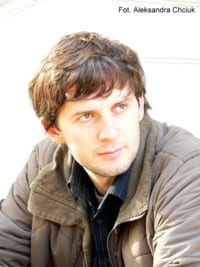 The jury of the Witold Lutosławski Society decided to award the Lutosławski Scholarship to young Polish composer, Marcin Stańczyk. The prize was given to the recipient by Gabriela and Marcin Bogusławski. The jury members included Łukasz Borowicz, Kazimierz Kord, Jerzy Kornowicz, Włodzimierz Kotoński, Jan Krenz, and Grzegorz Michalski. This grant will finance Mr. Stańczyk’s course of composition and electronic music at the IRCAM in Paris during the academic year 2011/2012.
The jury of the Witold Lutosławski Society decided to award the Lutosławski Scholarship to young Polish composer, Marcin Stańczyk. The prize was given to the recipient by Gabriela and Marcin Bogusławski. The jury members included Łukasz Borowicz, Kazimierz Kord, Jerzy Kornowicz, Włodzimierz Kotoński, Jan Krenz, and Grzegorz Michalski. This grant will finance Mr. Stańczyk’s course of composition and electronic music at the IRCAM in Paris during the academic year 2011/2012.
Born in 1977, Marcin Stańczyk graduated from the University of Łódź with a degree in law, while simultaneously studying music theory and composition with Zygmunt Krauze at the Łódź Music Academy. As a post-graduate student he also took Ivan Fedele’s courses in composition at the Accademia Nazionale di Santa Cecilia in Rome.
[source: polmic.pl]
Festivals
Zubel at Other Minds 16
 The 16th annual Other Minds Festival of New Music (February 27 – March 5) will feature maverick composers and leading avant-garde performers from around the world in concerts and panel discussions, including Polish composer Agata Zubel. Not only is Zubel’s music featured on 2 of the 3 concerts, her photo has also become the representation of this year’s events (see right). The Festival is comprised of a 4-day residency at the Djerassi Resident Artists Program in Woodside, CA, followed by 3 days of concerts in Kanbar Hall at the Jewish Community Center of San Francisco.
The 16th annual Other Minds Festival of New Music (February 27 – March 5) will feature maverick composers and leading avant-garde performers from around the world in concerts and panel discussions, including Polish composer Agata Zubel. Not only is Zubel’s music featured on 2 of the 3 concerts, her photo has also become the representation of this year’s events (see right). The Festival is comprised of a 4-day residency at the Djerassi Resident Artists Program in Woodside, CA, followed by 3 days of concerts in Kanbar Hall at the Jewish Community Center of San Francisco.
San Francisco Chronicle music critic Joshua Kosman, summed up the Festival in his 2004 review entitled “Composers stir up musical brainstorms at Other Minds Festival”:
And so [Executive Director Charles Amirkhanian] inaugurated the Other Minds Festival, an annual event that is something between a house party and think tank for the contemporary music set… The plan is beguilingly simple. Each year, a diverse crowd of composers assembles in Woodside for several days of private powwows, at the end of which they come up to San Francisco for public performances. But within that straightforward framework, the possibilities for cross- fertilization are as various as the composers themselves. Over the past decade, minimalists and free-jazz improvisers, academics and Hollywood composers, rockers and electronic composers and folk singers have been eased into dialogue with one another.
OM 16 Concerts 2011:
Thursday, March 3, 2011 | 7pm Panel, 8pm Concert
Special guest ensemble Seattle Chamber Players will kick off the festival with works by Louis Andriessen, Kyle Gann, Janice Giteck, and vocalist-composer Agata Zubel, who will join SCP onstage for her riveting work Cascando. Violinist-vocalist Monica Germino will also take the stage for Andriessen’s Le Voile de Bonheur.
Friday, March 4, 2011 | 7pm Panel, 8pm Concert
This exceedingly eclectic program will include Dutch improvising legend Han Bennink on drums with local hero Fred Frith (OM 11), another incredible guitarist in I Wayan Balawan (Indonesia), another work by Agata Zubel, and the world premiere of a new work by Berkeley composer David A. Jaffe, featuring percussionist Andrew Schloss, Del Sol String Quartet, and a special installation by Trimpin (OM 1).
Saturday, March 5, 2011 | 7pm Panel, 8pm Concert
The final concert of OM 16 will bring back to the stage Andriessen and Gann, the former with Germino and the riveting Italian soprano Cristina Zavalloni, and the latter featuring the Bay Area’s “fiercely gifted” (NY Times) pianist and new music advocate Sarah Cahill. The festival will close with a bang, provided by the premiere of a new work, commissioned by OM, by 2010 MacArthur Fellow Jason Moran.
Festival Details / Tickets / Venue
Agata Zubel (b.1978, Wrocław) graduated with honors Primus Inter Pares from the Karol Lipinski Academy of Music, where she studied composition with Jan Wichrowski and Danuta Paziuk-Zipser. She has enjoyed as much acclaim for her singing as her composing, and frequently performs her own music. She has won several competitions, for both voice and composition. In 2005, she received the prestigious Passport Award given by Polityka Magazine in the category of classical music. In the same year, her second symphony—commissioned by Deutsche Welle—was premiered during the Beethoven Festival in Bonn. She has performed extensively throughout Europe, Canada and the U.S. She is featured on two CDs recently released by CD Accord: Cascando, with her own chamber music, and Poems, with the songs of Copland, Berg and Szymanski. She is a member of the Polish Composers’ Union and is on the faculty of the Academy of Music in Wrocław. Her motto is “At the beginning there was rhythm and colour”!
[Sources: otherminds.org, articles.sfgate.com, zubel.pl, jccsf.org, Photo: Tomasz Kulak/OM pamphlet]
Discography
Smolij Conducting Rósza
RÓZSA, M.: 3 Hungarian Sketches / Rhapsody / Notturno ungherese
Mark Kosower – cello, Budapest Symphony Orchestra MAV, Mariusz Smolij – conductor
8.572285
 NAXOS Records has released a fourth album recorded by Polish conductor Mariusz Smolij. Following successful and well-reviewed recordings of Polish composers Andrzej Panufnik (Naxos 8.570032) and Thaddeus Szeligowski (Naxos 8.570371), the present CD is the second volume in which Smolij presents the achievements of composer Miklós Rózsa (the first recording in Smolij’s Rózsa series is Naxos 8.570925).
NAXOS Records has released a fourth album recorded by Polish conductor Mariusz Smolij. Following successful and well-reviewed recordings of Polish composers Andrzej Panufnik (Naxos 8.570032) and Thaddeus Szeligowski (Naxos 8.570371), the present CD is the second volume in which Smolij presents the achievements of composer Miklós Rózsa (the first recording in Smolij’s Rózsa series is Naxos 8.570925).
Rózsa, a Hungarian composer who spent most of his life in the United States, is mainly known for his music for famous films such as Ben Hur and Quo Vadis. The recordings included in the Naxos albums display his creative talent in the field of concert music. The most recent album was recorded with the participation of the Budapest Symphony Orchestra, and concertmaster and soloist with the Cleveland Orchestra cello group – Mark Kosower.
The spirit of his native Hungary is seldom far away from the concert music of Miklós Rózsa, in spite of some 55 years spent in Hollywood and his long association with music for the cinema. His Viola Concerto, the later of the two works presented on the first Smolij recording of Rózsa’s music, was written in 1979 – at the request of Piatigorsky for the young Pinchas Zuckerman, who gave its first performance – and brings with it a certain astringency reminiscent of Bartók rather than Kodály.
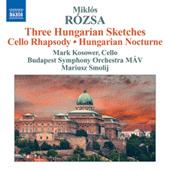 The most recent Naxos album of Rózsa’s concert works also presents music strongly reflective of the composer’s Hungarian roots. In the Rhapsody for Cello, Hungarian melodic contours and themes can be clearly heard as the music changes speed at an almost dizzying pace. His Hungarian Sketches is notable for the nocturnal evocation of the countryside in the “Pastorale,” which is followed by a peasant dance. The events of the 1956 Hungarian uprising had a bearing on the character of Rózsa’s turbulent and angst-filled Concert Overture. The impressionistic Notturno ungherese of 1963 opens with an evocation of the Hungarian countryside at sunset.
The most recent Naxos album of Rózsa’s concert works also presents music strongly reflective of the composer’s Hungarian roots. In the Rhapsody for Cello, Hungarian melodic contours and themes can be clearly heard as the music changes speed at an almost dizzying pace. His Hungarian Sketches is notable for the nocturnal evocation of the countryside in the “Pastorale,” which is followed by a peasant dance. The events of the 1956 Hungarian uprising had a bearing on the character of Rózsa’s turbulent and angst-filled Concert Overture. The impressionistic Notturno ungherese of 1963 opens with an evocation of the Hungarian countryside at sunset.
[Sources: polmic.pl, naxos.com, mariuszsmolij.com]
Chopin Impressions
Alfred Watson: Classical Composer and Pianist
Original compositions inspired by the music of Chopin, performed by the composer
2010 Alfred Watson
“My mission has always been, to bring the beauty of classical music to as many people in all cultures and stations of life as possible. To me, there is no greater pleasure than to share and communicate my personal and profound love of music.” A. Watson
 Alfred Watson is a graduate of the Juilliard School of Music in New York, which he attended at the same time as the famous American pianist Van Cliburn. Watson’s teachers included James Friskin and Alexander Lipsky. The son of a Polish immigrant who was a musician in a polka band, Watson was not to follow the musical profession nor was he exposed to classical music. His musical journey began as the result of, all things, a movie—“A Song To Remember,” the life story of Frederic Chopin. Watson saw the film when he was twelve years old. “When I walked out of that movie, a fire had been lit. The direction of my entire life had changed. I became obsessed with classical music. I understood Chopin, his music and his life. I was Chopin!”
Alfred Watson is a graduate of the Juilliard School of Music in New York, which he attended at the same time as the famous American pianist Van Cliburn. Watson’s teachers included James Friskin and Alexander Lipsky. The son of a Polish immigrant who was a musician in a polka band, Watson was not to follow the musical profession nor was he exposed to classical music. His musical journey began as the result of, all things, a movie—“A Song To Remember,” the life story of Frederic Chopin. Watson saw the film when he was twelve years old. “When I walked out of that movie, a fire had been lit. The direction of my entire life had changed. I became obsessed with classical music. I understood Chopin, his music and his life. I was Chopin!”
Watson has performed on many radio stations and in recitals in the U.S. including Aeolian Hall and Carnegie Recital Hall in New York City, and the Garden State Arts Center in New Jersey, as well as numerous colleges, universities and concerts series on the East coast, including Middlesex College, Merrimack College, Performing Art Centers in Littleton, MA, and Andover to name just a few. He also performed in Warsaw and was given the rare honor of performing in the home of Frederick Chopin in Żelazowa Wola, Poland, as a special guest performer at the Chopin festival.
[Sources: letter, alfred-watson.com]
Performances
New Onegin At Kraków Opera
On December 10, 2010, the Kraków Opera premiered a new staging of Tchaikovsky’s opera Eugene Onegin. The title role was performed by Polish baritone Mariusz Kwiecień, a star of the New York Metropolitan Opera and a soloist on international stages.
Prepared jointly with the Grand Theatre Opera in Poznań, the ABAO in Bilbao and the Teatro Argentino de La Plata, the production has an international team of performers and producers. It is directed by Michał Znaniecki, with Łukasz Borowicz as the music director. The stage set has been designed by Luigi Scoglio and Diana Theocharidis has prepared the choreography.
[Source: beethoven.org.pl, opera.krakow.pl, Photo: Jacek Wrzesiński/Agencja MAI/e-teatr.pl]
Avdeeva & NY Phil
 Fulfilling one of the many opportunities afforded to her as the Grand Prize winner of the 2010 Chopin Competition in Warsaw, Yulianna Avdeeva performed with the New York Philharmonic in Lincoln Center’s Avery Fisher Hall on January 4, 2011. The program included Chopin’s Piano Concerto No. 1 in E minor, Op. 11, and the music from Act II of Tchaikovsky’s The Nutcracker, followed with an encore of Chopin’s Mazurka in A minor, Opus 67 No. 4.
Fulfilling one of the many opportunities afforded to her as the Grand Prize winner of the 2010 Chopin Competition in Warsaw, Yulianna Avdeeva performed with the New York Philharmonic in Lincoln Center’s Avery Fisher Hall on January 4, 2011. The program included Chopin’s Piano Concerto No. 1 in E minor, Op. 11, and the music from Act II of Tchaikovsky’s The Nutcracker, followed with an encore of Chopin’s Mazurka in A minor, Opus 67 No. 4.
The reviews from the evening were mixed. Reviewer Martin Bernheimer of the Financial Times Arts section shared this glowing impression:
[Avdeeva] mustered surging strength for the outer movements, but never allowed passion to distort clarity, never let the familiar sound routine, never confused sentiment with vulgarity. She let the music breathe, balancing the contradictory forces of flexibility and restraint. She made the florid flights seem organic, expressive devices rather than mere decorations, and in the moonstruck reverie of the Larghetto, shaded the line exquisitely, enriching the sighs and whispers with subtle dynamic contrasts and gentle rubato. Gilbert and the Philharmonic provided perfectly sympathetic support… Yulianna Avdeeva. Remember the name.
While Vivien Schweitzer of The New York Times considered Avdeeva’s performance to be much more clinical in its presentation:
Competitions are often derided for their scorecard mentality, but they offer aspiring musicians a coveted chance to perform with major orchestras. Ms. Avdeeva made her debut with the Philharmonic during its recent European tour, performing the E minor Concerto in Warsaw [last October]. She is the first woman to have won the competition, held every five years, since Martha Argerich’s victory in 1965. Other storied winners include Garrick Ohlsson, Krystian Zimerman and Maurizio Pollini, all now much admired Chopin interpreters.
Ms. Avdeeva, who looked stylish in a black tuxedo and heels, performed with the requisite technique here, blending a muscular approach with an ability to tease out Chopin’s singing lines expressively. Yet there was nothing distinctive or probing about her playing…
Read an excerpt of an interview with Avdeeva, discussing her thoughts on Chopin and her connections to Poland with Gazeta Wyborcza here.
 During the concert, the 10th issue of Poland’s Beethoven Magazine—the first ever issue to be published in English and summarizing the events of the recent Chopin Competition in Warsaw—was distributed as part of an effort to spread information about Polish cultural events in 2011. It was the first time in the 169-year history of the renowned New York Philharmonic that external promotional material was distributed at a subscription concert.
During the concert, the 10th issue of Poland’s Beethoven Magazine—the first ever issue to be published in English and summarizing the events of the recent Chopin Competition in Warsaw—was distributed as part of an effort to spread information about Polish cultural events in 2011. It was the first time in the 169-year history of the renowned New York Philharmonic that external promotional material was distributed at a subscription concert.
[Sources: ft.com, culture.pl, nytimes.com, beethoven.org.pl, Photos: beethoven.org.pl]
Saciuk Bids Opera Stage Farewell
Polish bass Andrzej Saciuk (b. 1933) ended his 57-year opera career on January 11, 2011, singing Skołuba in Stanisław Moniuszko’s The Haunted Manor at the Grand Opera in Łódź, Poland—in the same role and one the same stage where his career. In addition to major roles with Polish companies (Godunov in Mussorgsky’s Boris Godunov, Mephistopheles in Gounod’s Faust, Konchak in Borodin’s Prince Igor and Don Basilio in Rossini’s The Barber of Seville), Saciuk has performed with opera companies in Austria, France and Germany, including the Deutsche Oper am Rhein in Duesseldorf, which honoured him in 1998 with the prestigious title of Kammersanger. He has also had a successful concert career, including a performance in New York’s Carnegie Hall with Renata Tebaldi and Placido Domingo.
[Source: thenews.pl, Photo: Chwalisław Zieliński/operalodz.com]
Szymanowski In London
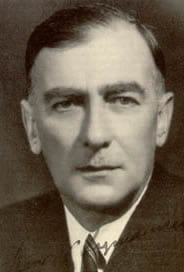 On January 14 at London’s Royal Festival Hall at Southbank Centre, the London Philharmonic Orchestra performed Szymanowski’s Concerto for violin and orchestra, Op. 61, and Gustav Mahler’s Symphony No. 6. The Szymanowski was performed by Greek virtuoso violinist Leonidas Kavakos. The scheduled conductor for the evening was Jaap van Zweden, however due to illness, van Zweden was replaced on short notice by maestro Johannes Wildner. This concert was supported by the Adam Mickiewicz Institute, as part of the “Polska Music” program.
On January 14 at London’s Royal Festival Hall at Southbank Centre, the London Philharmonic Orchestra performed Szymanowski’s Concerto for violin and orchestra, Op. 61, and Gustav Mahler’s Symphony No. 6. The Szymanowski was performed by Greek virtuoso violinist Leonidas Kavakos. The scheduled conductor for the evening was Jaap van Zweden, however due to illness, van Zweden was replaced on short notice by maestro Johannes Wildner. This concert was supported by the Adam Mickiewicz Institute, as part of the “Polska Music” program.
The external website of the Mickiewicz Institute, culture.pl, provides the following background to Szymanowski’s Violin Concerto:
Karol Szymanowski composed his second “Concerto for violin and orchestra Op. 61” at the behest of Paweł Kochański, the violinist who had once advised him on the famous “Myths” and the “Violin Concerto No. 1,” and this time devising no less than a cadence for the new concerto.
Kochański was also the first performer of the piece, which premiered on October 6, 1933 at the Warsaw Philharmonic. It turned out to be the last public performance of the ingenious violinist, [as] Kochański died on January 12, 1934. Deeply moved by the departure of his friend Szymanowski appended the score with a dedication saying, “A la memoire du Grand Musicien, mon cher et inoubliable Ami, Paul Kochański”.
Written in 1932-33, “Concerto No. 2” is very different from the first one—primarily in the sparing use of technical means. Complicated harmony and chromatisms have given way to diatonics and modal lucidity. The dominant role is played by the changes of colour—the evolutions of chord sounds, virtuoso figurations and melodic motifs. The simple, lapidary themes underlie, however, a rich musical narrative. Architecturally, Szymanowski revisits the single-movement form whose two sections are separated by a violin cadence—a design known from his “Violin Concerto No. 1”, “Symphony No. 3” and “Piano Sonata No. 3.” While the first building block has the form of a sonata allegro culminating with two episodes in the slow part and a scherzo, the other one is constructed like a rondo whose main theme, rhythmic, merry and bouncy, is evocative of the melodies of the Kurpie region and of the mood of the music of the Podhale region, ending with the initial theme of the first building block.
[Sources: lpo.org.uk, culture.pl]
Lutosławski’s Birthday Concert
 A “Concert in Memory of Witold Lutosławski” was organized by the Witold Lutoławski Society on January 25, 2011, in honor of the 98th anniversary of the composer’s birthday. It took place in the Great Assembly Room of the Royal Castle in Warsaw.
A “Concert in Memory of Witold Lutosławski” was organized by the Witold Lutoławski Society on January 25, 2011, in honor of the 98th anniversary of the composer’s birthday. It took place in the Great Assembly Room of the Royal Castle in Warsaw.
Performers for the event were Konstanty Andrzej Kulka, violin and Andrzej Guz, piano. They performed G. Tartini – Sonata in G minor, I.J. Paderewski – Sonata in A minor, Op. 13 and W. Lutosławski – Partita for violin and piano.
[Source: lutoslawski.org.pl]
Paderewski In Vienna

An evening dedicated to one of the most captivating and significant characters in Polish history of the 19th and 20th century was hosted by the Polish Institute in Vienna on January 25.
The concert of chamber music by Ignacy Jan Paderewski featured Lech Napierała (piano), Judyta Le Monnier (violin) and Barbara Zamek-Gliszczyńska (vocalist). A lecture about the life and works of Paderewski is given by Prof. Dr. Philipp Ther of the Department of Eastern European History at the University of Vienna.
[Source: Polish Cultural Institute-Vienna via culture.pl]
Concert Of Peace And Hope
On January 30, the American Youth Symphony (AYS) conducted by Alexander Treger presented a concert of peace and hope at UCLA’s Royce Hall in Los Angeles. AYS was joined by the members of the Los Angeles Master Chorale and students from the USC Thornton School of Music. The performance included the US premiere of Charles Fox’s Lament and Prayer, an oratorio set to the words of Pope John Paul II that were placed on the Western Wall in Jerusalem. The concert was free and open to the public.
The performance featured Cantor Raphael Frieder, who sang the baritone solo part in the world premiere of Lament and Prayer in Poland in June 2009. 70 cantors from around the world participated in the premiere at the National Opera in Warsaw (pictured above), and reconnected with the birthplace of cantoral music and the roots of Jewish culture in Poland. Excerpts from this historic performance were featured in a documentary entitled 100 Voices: The Journey Home. Both concerts and the movie were supported by the Consulate of Poland in LA.
[Source: Press release, Photo: PMC Archives]
Obituaries
Dr. Jadwiga Paja-Stach
 On January 11, 2011, musicologist and Lutosławski expert Dr. Jadwiga Paja-Stach passed away in Kraków after a long struggle with illness. Dr. Paja-Stach was the Vice-Director of the Institute of Musicology at Jagiellonian University and a former editor with Polish Music Editions PWM. She wrote countless articles and books in several languages, and was a key figure in propagating information about Polish music around the world. Her funeral was held on January 20 at the Batowice Cemetery.
On January 11, 2011, musicologist and Lutosławski expert Dr. Jadwiga Paja-Stach passed away in Kraków after a long struggle with illness. Dr. Paja-Stach was the Vice-Director of the Institute of Musicology at Jagiellonian University and a former editor with Polish Music Editions PWM. She wrote countless articles and books in several languages, and was a key figure in propagating information about Polish music around the world. Her funeral was held on January 20 at the Batowice Cemetery.
[Sources: polmic.pl, Photo: Kraków 2009 / pwm.com.pl]
Dr. Tadeusz Przybylski SDB
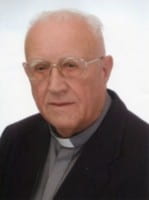 Dr. Tadeusz Przybylski, a musicologist at the Jagiellonian University and a Salesian priest, died suddenly in Kraków on January 23, 2011. In addition to the fifty years at the Institute of Musicology at the Jagiellonian University, Dr. Przybylski was also a professor at the Kraków Academy of Music, member of the Polish Composers’ Union, and member of the Historical Commission of the Polish Academy of Sciences. Ordained into priesthood in 1955, Dr. Przybylski SDB was a noted researcher and scholar who passionately studied Polish music history from the 18th century to the present era. Author of the first biography of Karol Kurpiński and of publications on lesser-known composers, including Wacław Sierakowski, Antoni Rutkowski, and Ignacy Friedman, among others, Dr. Przybylski also contributed to studies of the musical traditions and history of Kraków. During the ceremonies celebrating his 80th birthday last year, he was presented with a special commemorative book by his colleagues at the Institute of Musicology, detailing his voluminous professional accomplishments. He will be remembered as an exceptional, distinguished, and much admired figure among his friends, students and family. Dr. Przybylski’s funeral was held on January 27 and he was interred at the Rakowicki Cemetery in Kraków in the Salesian priests’ crypt.
Dr. Tadeusz Przybylski, a musicologist at the Jagiellonian University and a Salesian priest, died suddenly in Kraków on January 23, 2011. In addition to the fifty years at the Institute of Musicology at the Jagiellonian University, Dr. Przybylski was also a professor at the Kraków Academy of Music, member of the Polish Composers’ Union, and member of the Historical Commission of the Polish Academy of Sciences. Ordained into priesthood in 1955, Dr. Przybylski SDB was a noted researcher and scholar who passionately studied Polish music history from the 18th century to the present era. Author of the first biography of Karol Kurpiński and of publications on lesser-known composers, including Wacław Sierakowski, Antoni Rutkowski, and Ignacy Friedman, among others, Dr. Przybylski also contributed to studies of the musical traditions and history of Kraków. During the ceremonies celebrating his 80th birthday last year, he was presented with a special commemorative book by his colleagues at the Institute of Musicology, detailing his voluminous professional accomplishments. He will be remembered as an exceptional, distinguished, and much admired figure among his friends, students and family. Dr. Przybylski’s funeral was held on January 27 and he was interred at the Rakowicki Cemetery in Kraków in the Salesian priests’ crypt.
[Sources: krakow.pl, polmic.pl, aktualnosci.uj.edu.pl]
Anniversaries
Born This Month
- 2 February 1909 – Grazyna BACEWICZ , composer, violinist, pianist (d. 1969)
- 7 February 1877 – Feliks NOWOWIEJSKI, composer, organist
- 8 February 1953 – Mieszko GÓRSKI, composer, teacher (active in Gdansk and Koszalin)
- 9 February 1954 – Marian GORDIEJUK, composer, teacher, theorist (active in Bydgoszcz)
- 14 February 1882 – Ignacy FRIEDMAN, pianist and composer (d. 1948)
- 18 February 1881 – Zygmunt MOSSOCZY, opera singer (bass), chemist (d. 1962)
- 27 February 1898 – Bronislaw RUTKOWSKI, organist, music critic, conductor and composer (d. 1964)
- 28 February 1910 – Roman MACIEJEWSKI , composer, pianist (d. 1998 in Sweden)
- 28 February 1953 – Marcin BŁAŻEWICZ, composer, teacher (active in Warsaw)
Died This Month
- 3 February 1959 – Stanisław GRUSZCZYŃSKI, tenor (active throughout Europe, b. 1891)
- 3 February 1929 – Antoni Wawrzyniec GRUDZIŃSKI, pianist, teacher, and music critic (active in Lódz and Warsaw, b. 1875)
- 7 February 1954 – Jan Adam MAKLAKIEWICZ, composer (active in Warsaw, b. 1899)
- 7 February 1994 – Witold LUTOSŁAWSKI, composer and conductor (b. 1913)
- 8 February 1909 – Mieczysław KARŁOWICZ, composer, conductor, writer (b. 1876)
- 9 February 1959 – Ignacy NEUMARK, composer and conductor (active in Copenhagen, Oslo and Schveningen, b. 1888)
- 10 February 1905 – Ignacy KRZYŻANOWSKI, pianist and composer (active in Kraków and Warsaw, b. 1826)
- 14 February 1957 – Wawrzyniec Jerzy ŻULAWSKI, composer, music critic, teacher, and mountain climber (b. 1916)
- 15 February 2010 – Adam KACZYŃSKI, pianist, composer and creator of the MW2 new music ensemble (b. 13 October 1933)
- 15 February 2010 – Marek JASIŃSKI, composer and professor in Bydgoszcz (b. 1949)
- 23 February 1957 – Stefan ŚLĄZAK, singer, organist, conductor (active in Silesia, b. 1889)
- 27 February 1831 – Józef KOZLOWSKI, composer (active at the Russian Court in Petersburg, b. 1757)
- 29 February 2004 – Witold RUDZIŃSKI, composer, music critic and teacher







